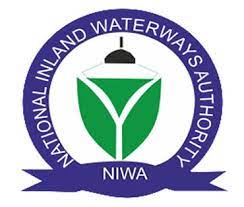
Waterways: Lagos v federal government – who won?
Facts
Lagos v federal government stemmed from a Lagos Federal High Court judgment in which Justice Tsoho had held that the National Assembly was competent to make laws governing Nigeria’s intrastate and inland waters. The plaintiff at said trial (Incorporated Trustees of the Association of Tourist Boat Operators and Dredgers Association) had asked the court via an originating summons to determine whether the National Inland Waterways Authority or the Lagos Waterways Authority is the entity entitled to control the licensing, registration and operation of boats and water transportation activities on Nigeria’s inland waterways. The plaintiff’s main grievance at the trial was the apparent exposure of its members to double taxation from both agencies.
Decision
The appeal turned on whether the regulation and control of Lagos state intrastate and inland waterways falls under the exclusive legislative list which confers legislative competence on the National Assembly. On July 18 2017 the Court of Appeal, sitting in Lagos, declared the Lagos State House of Assembly competent to make laws relating to intra-inland waterways in the state. In arriving at its decision, the Court of Appeal undertook a conjunctive reading of Items 29, 36 and 64 of the exclusive legislative lists in Part 1 of the Second Schedule to the Constitution 1999, which read as follows:
“29 Fishing and fisheries other than fishing and fisheries in rivers, lakes, waterways, ponds and other inland waters within Nigeria…
36 Maritime shipping and navigation, including – (a) Shipping and navigation on tidal waters; (b) Shipping and navigation on the River Niger and its affluents and on any such other inland waterway as may be designated by the National Assembly to be an international waterway or to be an inter-State waterway; …
64 Water from such sources as may be declared by the National Assembly to be sources affecting more than one state.”
Drawing on these provisions, the court concluded that in order for a waterway to fall within the scope of the exclusive legislative list, it must:
- cut across international and state boundaries; and
- be declared an international or interstate waterway by an act of the National Assembly.
As regards the second criterion, the court found the National Inland Waterways Act to be such an act and proceeded to rely on Section 10 of the act in conjunction with its Second Schedule. The Second Schedule contains a list of the navigable routes in the various states that fall within the scope of the exclusive legislative list. Item 5 of said schedule sets out the navigable routes touching on Lagos which fall under the exclusive legislative list. It provides thus:
“The Intra-coastal route from Badagry along the Badagry Creek to Lagos through Lagos Lagoon to Epe, Lekki Lagoon to Iwopin along Omu Creek, Talifa Kivei to Atijere, Akata, Aboto Oluwa River to Okitipupa and onto Gbekebo. Arogbo, Ofunama, Benin Creek to Warri. Also, the canal running from Araromi through Aiyetoro Imelumo to Benin River and from Aiyetoro through Mahin Lagoon to Igbokoda.”
The court found that the above route ran through international and state boundaries and was therefore consistent with the constitution, being an item on the exclusive legislative list. However, it held that all other intrastate and inland waterways within Lagos state that are not mentioned in Item 5 are outside the scope of the exclusive legislative list.
Their absence from the exclusive legislative list and the concurrent list in Part 1 and 2 of the Second Schedule to the Constitution, respectively, automatically renders them a residual matter under the legislative competence of the Lagos State House of Assembly. As such, any revenue accruable therefrom is payable to the Lagos State Waterways Authority.
Big win or hollow victory?
The court’s decision clarifies that all intrastate and inland waterways within Lagos state that are not mentioned in Item 5 of the Second Schedule to the National Inland Waterways Act fall under the legislative competence of Lagos state. Unfortunately, the court missed its chance to resolve this controversy conclusively when it failed to define ‘other intrastate waterways’. The National Inland Waterways Act is also silent on this.
On careful consideration, it would appear that all significant waterways in Lagos state are covered by the navigable route listed in the Second Schedule to the National Inland Waterways Act. As ‘intra’ suggests something ‘within’ or ‘between’, ‘intrastate waterways’ therefore indicates waterways that are strictly within Lagos, as opposed to interstate or international waterways.
Thus, intrastate waterways most likely have to start and end in Lagos. Most of the waterways in Lagos derive their origins from, or are intricately connected to, the Lagos Lagoon. Much of the sand mining and dredging activities, as well as most boat and water transport operations, take place along these routes, in which case they may be more appropriately categorised under the waterways expressly listed in the National Inland Waterways Act.
Contrary to reports, the decision is hardly a win for the Lagos state government. On appeal, the Supreme Court is expected to be called on to clarify the position of ‘intrastate’ waterways in order put the matter beyond doubt.
For further information on this topic please contact Victor Onyegbado at Akabogu & Associates by telephone (+234 1460 55550) or email (victor@akabogulaw.com). The Akabogu & Associates website can be accessed at www.akabogulaw.com.
The materials contained on this website are for general information purposes only and are subject to the disclaimer. ILO is a premium online legal update service for major companies and law rms worldwide. In-house corporate counsel and other users of legal services, as well as law rm partners, qualify for a free subscription.
